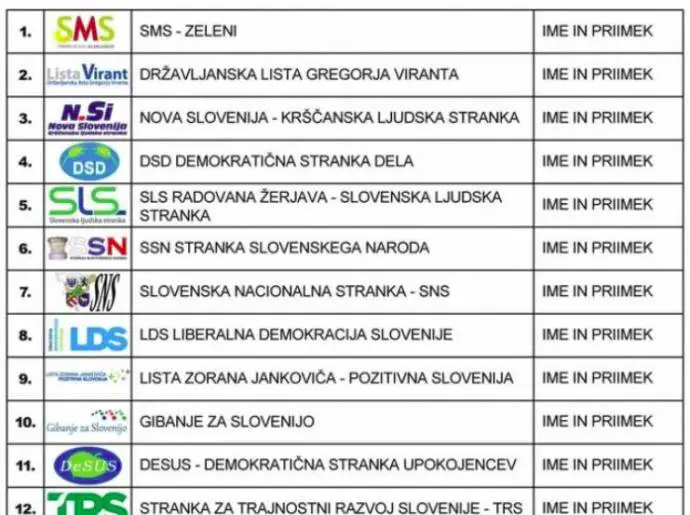In the second round of consultations leading up to his nomination of a prime minister-designate, Pahor hosted the heads of deputy groups who are engaged in coalition talks with the Marjan Šarec List (LMŠ) plus the Left.
Šarec has been talking with the Modern Centre Party (SMC), Alenka Bratušek Party (SAB), Social Democrats (SD), Pensioners' Party (DeSUS) and New Slovenia (NSi) about a coalition agreement blueprint his party proposed.
The parties have held several rounds of substantive talks and Šarec said today the draft agreement would be sent to the prospective partners on Monday, with the parties' decision-making bodies expected to weigh in next week.
But Šarec lacks strong commitments from the prospective partners, which is why the head of the LMŠ deputy group, Brane Golubovič, came to President Pahor today with the message that Šarec does not have a majority yet.
Pahor decided today to make Janša, the president of the Democrats (SDS), the prime minister-designate, as he had indicated several times before, reasoning that as the election winner, Janša should get the first attempt to form a government.
Pahor's office said after the consultations that the president would talk to National Assembly Speaker Matej Tonin in the first half of next week and Janša in the second half of next week "to consult about the option of nominating him PM-designate."
But Janša lacks a majority as well, the result of pledges by the majority of the centrist and leftist parties that they would not join Janša's coalition due to his far-right rhetoric.
The only party that has had no problems joining a Janša-led coalition is the conservative NSi, whose leader Matej Tonin had been elected speaker of parliament as a stop-gap solution in the absence of a firm coalition.
But even in the ranks of the NSi some object to a coalition with Janša.
Ljudmila Novak, who stepped down as NSi leader a few months before the election but was elected MP, said today she would not vote for a Janša coalition.
"A politician who builds his policy on divisions cannot be prime minister," she told reporters in parliament today.
In view of the possibility of Janša joining forces with the National Party (SNS), whose leader Zmago Jelinčič has recently been expelled from the Council of Europe for life due to corruption, Novak said that such a government "would seriously lack credibility from the start".
Novak, who was a minister without portfolio in the second Janša government in 2012, said her stance was not about personal qualms but one based on principle.
"I believe Slovenia is too lenient on various players when someone needs them. What's important to me is that people work honestly and for the country, not whether they are ours or theirs. And because voters on the right have such a strong desire that the right finally play an important role in Slovenia, they are too forgiving," she said.
NSi deputy group leader Jožef Horvat did not talk to reporters after meeting President Pahor today, but the party had indicated it would support Janša for prime minister in the first round.
Given the strongly fragmented parliament, Janša would need the NSi plus at least two more parties to form a coalition; without Novak's vote, the task will be even harder.
Šarec has an equally daunting task. His prospective centre-left partners have pledged support in principle, but without the NSi he does not have enough votes to form what would be a cross-partisan coalition.
He has also held tentative talks with the Left, which has nine MPs, but the party said after the consultations with Pahor it could not support Šarec since they had been excluded from the coalition talks.
"It is clear that the already consolidated united centre simply does not want the Left in government," deputy group leader Matej T. Vatovec said.
Pahor nominates the prime minister-designate in the first of three rounds of nomination available according to law. He has until 22 July to do so, whereupon deputy groups may put forward their nominees as well.






